Review: What You Don't Know About Religion (But Should)
Brandon Sun, March 3, 2014 - David McConkey
You likely have noticed in the news that people are becoming less
religious. But how does this affect us as individuals and as a society?
A new book by an American social scientist gives us some provocative
answers. What
You Don't Know About Religion (But Should) is sure to
intrigue – and also infuriate – everyone from the very religious to the
avowed atheist.
The book’s author is Ryan T. Cragun, a sociologist of religion at the
University of Tampa in Florida. Cragun has interviewed and spoken with
thousands of people about their religious beliefs.
In addition to his scholarly research, Cragun brings a wealth of
personal experience. Raised as a devout Mormon, by the time he was an
adult he had read the entire Bible and the books of Mormon several
times. For two years, Cragun served as a missionary in Costa Rica,
where he told people, “If you do not get baptized into our church, you
will go to hell.” (He and his wife eventually left the Mormon Church.)
The bulk of the book analyzes surveys that have been conducted over the
past several decades. Much of the information is U.S. based, but there
are findings from the rest of the world as well. The author summarizes
a mass of data in a clear and readable way.
Social scientists can divide people into four religious groups. At one
end of the spectrum are the “fundamentalists” (for example, Baptist,
Evangelical, Mennonite and Mormon). At the other end are the
“nonreligious,” those with no religious affiliation. In the middle are
religious “moderates” (for example, Roman Catholic) and religious
“liberals” (for example, Anglican and United Church).
Of the American population, on one end of the continuum, 27% are
fundamentalists; at the other end, 19% are nonreligious. In the middle:
41% are moderates; 13% are liberals.
The results are in. So how does religion affect us and the way we live?
Here is the most surprising finding: often religion does not make much
of a difference in people’s lives. For example, whether people are
religious or not has little effect on their overall moral behaviour. As
well, (especially in developed countries) religion does not much impact
people’s happiness.
But, by a host of measures, the nonreligious are at a significant
advantage compared to the religious (especially fundamentalists). These
include a higher level of moral reasoning, more support for the rights
of women and minorities, and putting a greater value on science and
education.
The nonreligious also have a superior style of parenting; they “want
children who are considerate of others, interested in how the world
works, and are able to think for themselves.” Religious parents
(especially fundamentalists) primarily want children who are
“obedient.” Research shows that children do better when they are raised
in the way favoured by the nonreligious.
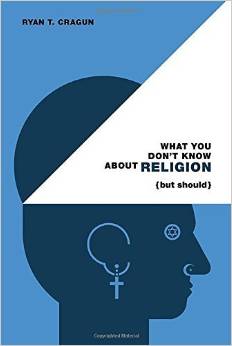
Nonreligious people deal well not only with life, but also with death.
Compared to the religious, the nonreligious are better at accepting and
coping with the end of their own lives.
“Our new, globalized, complex, multi-ethnic world demands a new
worldview,” Cragun says.
For this new outlook, he lists features like
tolerance, technology, science, critical thinking, education, respect
for the environment, gender equality, and good parenting. Cragun
concludes that the nonreligious can best meet the challenge.
Nonreligious people, he says, “stand out in many respects as ideal
citizens of the world right now.”
But Cragun differs with atheists like biologist Richard Dawkins, who
assert that all religions are bad. Cragun reports that religious
liberals are quite different from other religious groups. He finds
religious liberals score almost as well as the nonreligious; they are
“tolerant, progressive, agreeable, educated, and even largely
pro-science.”
Most people never think much about the religion they were born into. As
well, we are not accustomed to looking at religion scientifically. But
Cragun notes that the religions themselves are using science. Religions
employ social scientists to improve how they can keep their current
members and convert new ones. “Their scientists read all of the same
books and articles I read,” he says. “They attend the same academic
conferences I attend.”
What
You Don't Know About Religion (But Should) invites
all of us to
examine religion more scientifically. As individuals and as a society,
we can only benefit.
See also:
What
You Don't Know About Religion on Amazon.com (on
Amazon.ca)
Religion and Values in the Public Square
Popular Right Now:
- 15 Tips for Healthy Eating
- Quality of Life, Well-Being Research Something We Can Feel Good About
- Diets Don't Work, So What Does?
- Political Contributions: Top Ten Canadian Tax Tips
- Nestle Fitness 14 Day Weight Loss Program; What is Wrong Here?
- Charitable Donations: Top Ten Canadian Tax Tips
Must Read Books:
The 4-Hour Workweek:
Escape 9-5, Live Anywhere, and Join the New Rich
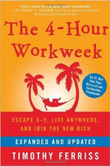
What You Don't Know About Religion (But Should)
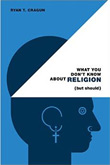
In Defense of Food:
An Eater's Manifesto
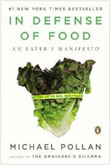
The Life-Changing Magic of Tidying Up:
The Japanese Art of Decluttering and Organizing
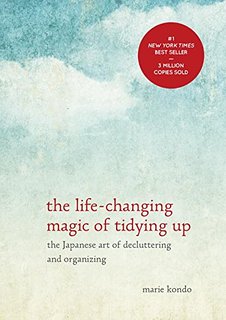
Don't
Even Think About It:
Why Our Brains are Wired to Ignore Climate Change

Like This? Share It!
Press Ctrl + D to Bookmark!
